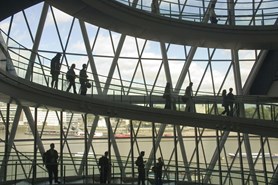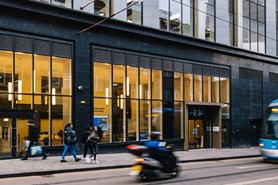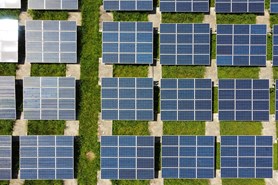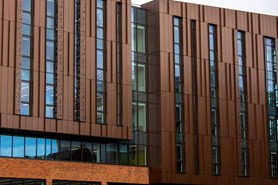Over the last decade, Muir Smith – Regional Director, Africa at Gleeds – has helped deliver massive commercial and real estate projects across Africa, particularly in Egypt.
Living and working in Egypt has its fair share of differences from Muir’s home in Scotland, and yet, the divide in culture and working practice is shrinking in an ever-globalising world. Today, Muir is part of Gleeds’ Europe, the Middle East and Africa (EMEA) team, leading expansion into Africa by heading up project and cost management of much-needed infrastructure developments. He has also recently been elected to chair the Chartered Institution of Building’s Cairo Hub committee.
We spoke to Muir about his thoughts on the emerging built environment market in Africa.
Given your experience in Egypt, how does delivering cost management services in that market differ from the rest of the world?
The cost management we do in Egypt closely aligns with UK practice. There’s a tradition here of UK quantity surveyors working closely with players in the region.
That answer was a bit different about 12 years ago when I started working here. A couple of big Gulf clients wanted British standards of quantity surveying in Egypt. And for about half a decade, we had a team of British people in the country supporting projects. Today, I’m the only British person in a team of roughly 70 people native to Egypt. Gleeds has played a big part in helping gradually upskill the quantity surveying industry in Egypt, aligning it with best practice in the UK and elsewhere. That knowledge sharing has helped establish a local team delivering the same high-quality clients would expect anywhere else in the world.
What is the biggest change you’ve seen made to the built environment in Egypt over the years?
Safety has seen a marked improvement on construction projects across Egypt, and it’s an area we’ve taken a keen interest in at Gleeds. In Cairo, you can feel the difference just in the last decade that I’ve been here.
Major international clients demand the same safety standards as they enjoy in other markets and Egypt is now delivering on this.
The most obvious change in Egypt over the last decade is the remarkable improvement in transport infrastructure and this is continuing apace.
What pressing issues is the construction industry trying to solve in Africa more widely?
Infrastructure is something that is badly needed in many places across Africa, especially because the continent is also experiencing a burgeoning middle class that wants the same things everyone else wants. They want next-day delivery, cinemas, schools, fast food places.
The interesting challenge with supporting projects in Africa is that you might be helping people get clean drinking water in one area – meanwhile, not very far away, someone wants a multiplex or next-day delivery. For an outsider, the juxtaposition can be very stark indeed, but our goal is to account for all of them.
In response to these challenges, we’re working closely with the UK Government, including the Department for International Trade and Foreign, Commonwealth & Development Office, who are very active globally at the moment in addressing infrastructure needs.
What do you think the most important thing for successful project delivery is?
The relationships within the teams and outside the teams is important. Any client will tell you that it’s about the people, and at Gleeds, we all know each other.
Some of the directors I’ve worked with, I’ve known throughout my time at Gleeds – personally, professionally. I know the people working under them, and they know me. The possibilities for collaboration are terrific because of that. There are various forums we also run for cost and project management which are critical to knowledge sharing.
That close-knit collaboration means you can never be that far away from the centre of a project. It’s just not possible. That’s an important part of Gleeds’ culture. We’re collaborative but at the same time autonomous within our respective countries – one entity built on a foundation of many strengths.
What projects are you supporting in the region?
Over the last decade we’ve worked on a wide variety of projects from extremely large scale and long-running mixed-use developments to standalone shopping malls, fit-outs for a wide variety of international clients, hospitality, and medical facilities including the Children’s Cancer Hospital Egypt, and most recently, the first proton therapy unit in Africa.
From our base in Cairo, we have also supported our Clients in locations including Jordan, Mauritania and the Democratic Republic of Congo.
And that’s the beauty of it – we get to be involved in many ways. And one of the advantages we offer our bigger international clients is that, often, they don’t necessarily have regular collaborators when they go to a place like Egypt, but they find themselves relieved to see Gleeds is already there. They know to expect a certain standard of quality because we’ve worked across a very international stage.
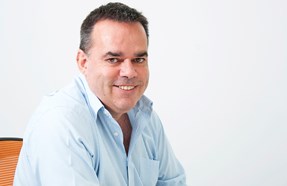
Muir Smith
Regional Director, Egypt
- muir.smith@gleeds.com.eg
- +2 02 270 22 900
You might be helping people get clean drinking water in one area – meanwhile, not very far away, someone wants a multiplex or next-day delivery. For an outsider, the juxtaposition can be very stark indeed, but our goal is to account for all of them.
